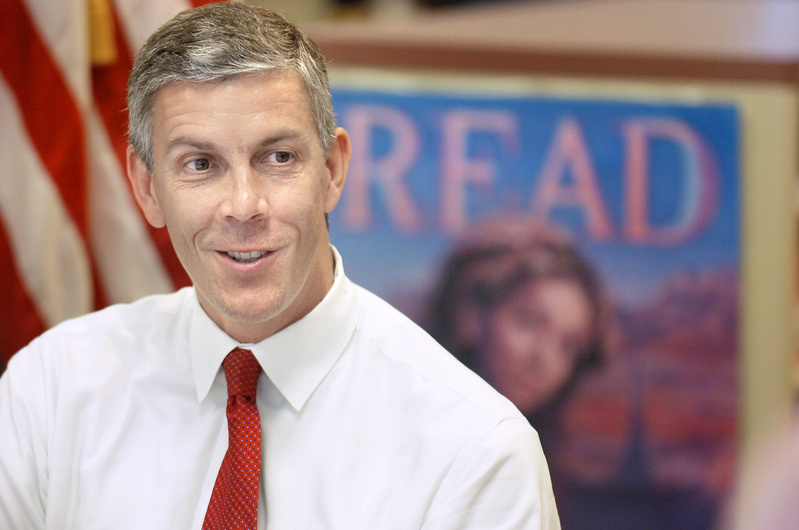Education Secretary Arne Duncan has given himself a difficult assignment. In events like Tuesday’s appearance in Portland, he has tried to make the case that even though he wants teachers to be held to a higher standard — and, in cases of long-term underperforming schools, favors removing the staff and starting over — he is really on the teachers’ side.
How well he strikes that balance will determine if this latest push to reform education will have any meaningful results. For Duncan’s program to succeed, teachers unions will have to give way or be pushed aside on issues they have dug in on in the past, including the expansion of charter schools, tying pay to performance and evaluating teachers by measuring student progress.
But it will take more than just winning on those issues. Duncan will also have to enlist the teachers to bring new ideas into the classroom. Without the teaching profession on board, the rest of this cannot happen. Educators, ultimately, have the biggest opportunity to overcome challenges.
“Our job is to support you,” Duncan said on an earlier stop on his “Courage in the Classroom” national tour. “Our job is to empower you. Our job is to give you a chance to make a huge difference in children’s lives.”
Duncan has said that education is the key civil rights issue of our time. The economic disadvantages poor children bring to the first day of kindergarten harden in school and become more difficult to overcome.
Duncan’s programs are seen by some as anti-teacher, but they are not. recognizing and rewarding the highest performers, while weeding out the ones who are not getting the job done, Duncan is betting that schools will be able to decrease the gap between rich and poor.
So far, educators in Maine have been wary about joining Duncan’s revolution. When the Race To The Top grant application was filed, only a third of local unions signed up in support.
The onus is now on Maine’s teachers and their unions to explain why continuing to operate under current rules will do more to give children the tools to succeed than Duncan’s data-driven attempt to make room for innovation and elevate the teaching profession. As schools in Maine open up, Duncan is not the only one who has a difficult assignment.
Send questions/comments to the editors.



Success. Please wait for the page to reload. If the page does not reload within 5 seconds, please refresh the page.
Enter your email and password to access comments.
Hi, to comment on stories you must . This profile is in addition to your subscription and website login.
Already have a commenting profile? .
Invalid username/password.
Please check your email to confirm and complete your registration.
Only subscribers are eligible to post comments. Please subscribe or login first for digital access. Here’s why.
Use the form below to reset your password. When you've submitted your account email, we will send an email with a reset code.